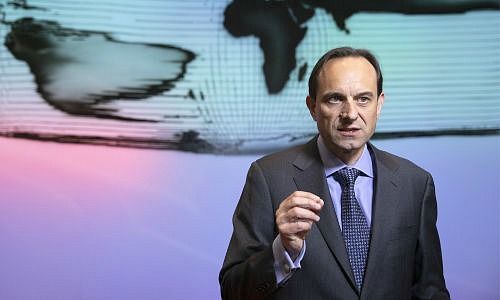The head of Switzerland's financial regulator stepped up the rhetoric for banks and insurers to rein in shareholder payouts, warning of a «ferocious» storm ahead.
Finma wants financial services firms to do more to cushion against economic havoc wrought by the coronavirus pandemic. Mark Branson, head of the Bern-based overseer, said banks and insurers need to rethink dividend payments for 2019, in an opinion piece in Swiss daily «Neue Zuercher Zeitung» (behind paywall, in German) on Thursday.
«The billions that could be distributed to shareholders in dividends in the coming weeks and months might be needed later,» Branson wrote. «We don't want to regret the coming dividend season, when we look at ourselves in the mirror later in the year.»
Verbal Intervention
The op-ed is a verbal intervention to get banks to stow more capital, amid what Branson called «ferocious» effects of the global coronavirus pandemic. His comments come one day after the Swiss government stepped in as the lender of last resort for businesses, and regulators eased requirements on banks to allow them to lend more.
Branson's soft-power bid comes as most Swiss financial firms are pledging to suspend share buybacks – Credit Suisse returned 1.7 billion Swiss francs ($1.7 billion) to its investors last year, mainly by repurchasing its own stock. UBS is mid-way through a 2 billion franc program.
Not Just Buybacks
Branson laid out that Finma expects more. «The suspension of many share buyback programs in the financial sector is a welcome sign. But it should not stop there,» he said.
His call comes as banks prepare to have their annual dividends approved by shareholders for payout in coming weeks. UBS is typically generous, paying out more than half its profits to investors.
Please Volunteer!
The Swiss wealth giant as well as Credit Suisse and Julius Baer, which pays more than one third of profits to shareholders, have stuck to their guns on payouts planned for 2019 until now.
Branson doesn't have the authority to order companies to suspend their payouts, provided the firms have adequate capital. «Strong institutions who act voluntarily now to restrict or delay distributions will remain stronger for longer, in the interest of all their clients,» he said.



































